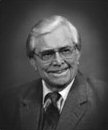Years ago there was a book on the market called I'm OK—You're OK. People said, "That's a wonderful new book—new psychology, new things to follow." Most people today don't know that the author of that book committed suicide about two years ago.
A Maryland radio preacher named Larry Tomczak allegedly imparted this information to a crowd of 8,000 at the Jesus West Coast rally in Chico, Calif. a year ago. No one was more upset at the news than Dr. Thomas Harris, the Sacramento psychiatrist who wrote the 1969 best-selling self-help book, and who was and is very much alive. Even before the rally his family had been hounded by the rumors. His daughters were questioned about him at school. His wife, Amy, a journalist and collaborator on the book, received a note of concern from a woman in Japan. A graduate seminar at a California university pondered the meaning of his death, and at least one after-dinner speaker made a joke of Harris' not-OK end. "Once, the girls heard a rumor that he had killed somebody as well," shudders Amy. "It was all so gross."
Although Harris does not know the source of the original rumor, he identified someone who was spreading it last September. That was when a woman phoned the Harrises to report she had just heard a tape of the Tomczak speech on a Sacramento area radio station, KFIA. Harris got a copy of the tape, listened to it—and last month he and his wife filed a $19.5 million slander suit against Tomczak and the owners of KFIA, among others. "We are not the suing types," insists Harris. "People said we should ignore it. But, golly, it kept hitting and hitting, and our credibility was going down the drain." The Harrises, who had been giving 10 lectures and seminars a month, state that bookings and royalties dropped off markedly when the rumor started.
Though Tomczak has not yet been heard from—he was on a speaking tour in South Africa when Harris filed suit and had not returned as of last week—his opinion of Harris and others like him is no secret. An elder in the Maryland-based Gathering of Believers sect, Tomczak writes for a religious newspaper called Lord Jesus Body and in 1978 published a book that lumps together such "unbiblical forms of relief" as "booze, dope, Valium, constant partying [and] psychiatry." Harris' suicide would thus have tended to prove his point.
In fact, Texas-born Harris is a church-going Presbyterian with impressive professional credentials. After med school, he interned in the Navy and survived the bombing of Pearl Harbor. Then Harris studied with noted psychological theorists Harry Stack Sullivan and Frieda Fromm-Reichmann before becoming a disciple of Eric (Games People Play) Berne and his Transactional Analysis. Harris, 70, frankly admits he is suing in part to publicize the fact that he is still among the living—and he has hired a Los Angeles PR firm to trumpet the news as well. In the handsome Sacramento home that I'm OK (10 million copies sold) helped to pay for, he and Amy are hard at work on the sequel, due at the publishers next October. By then, they hope, it will not be necessary to call it I'm Still OK.
http://www.people.com/people/archive/article/0,,20076291,00.html

No comments:
Post a Comment